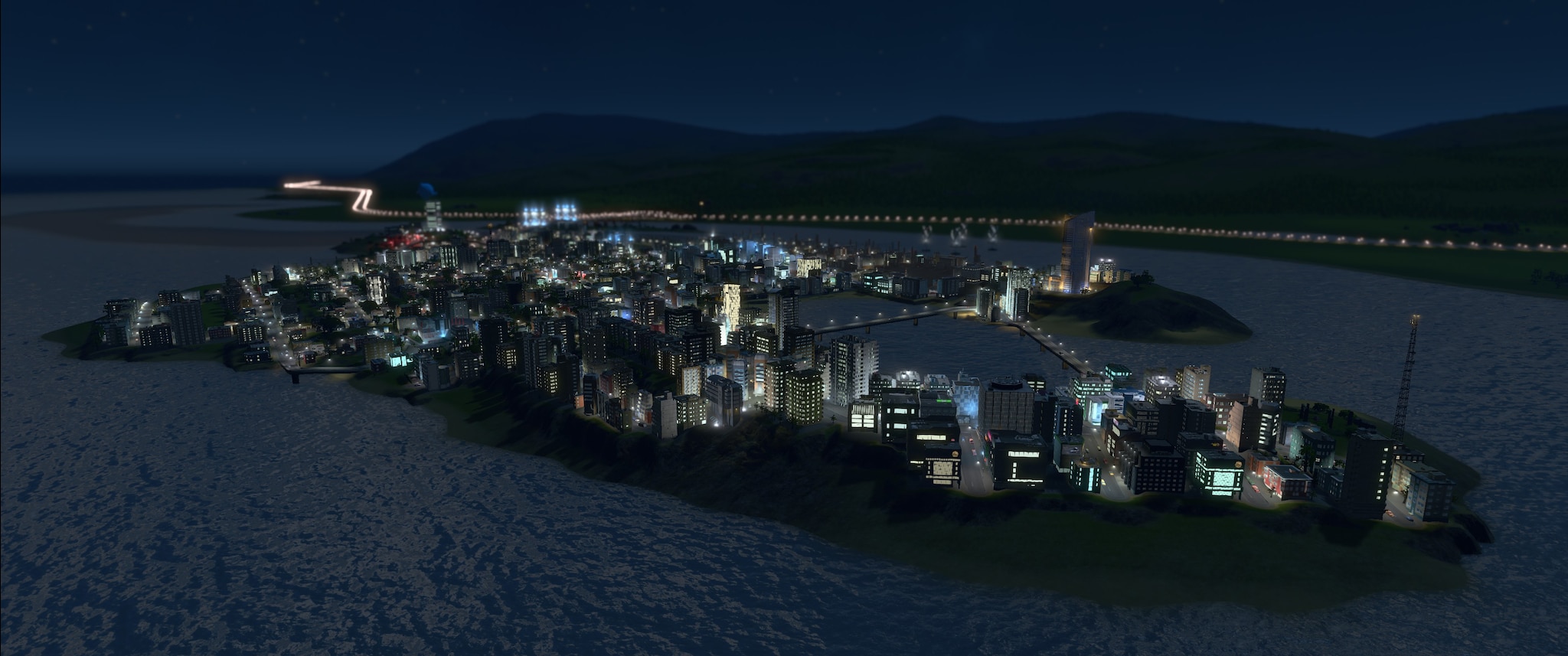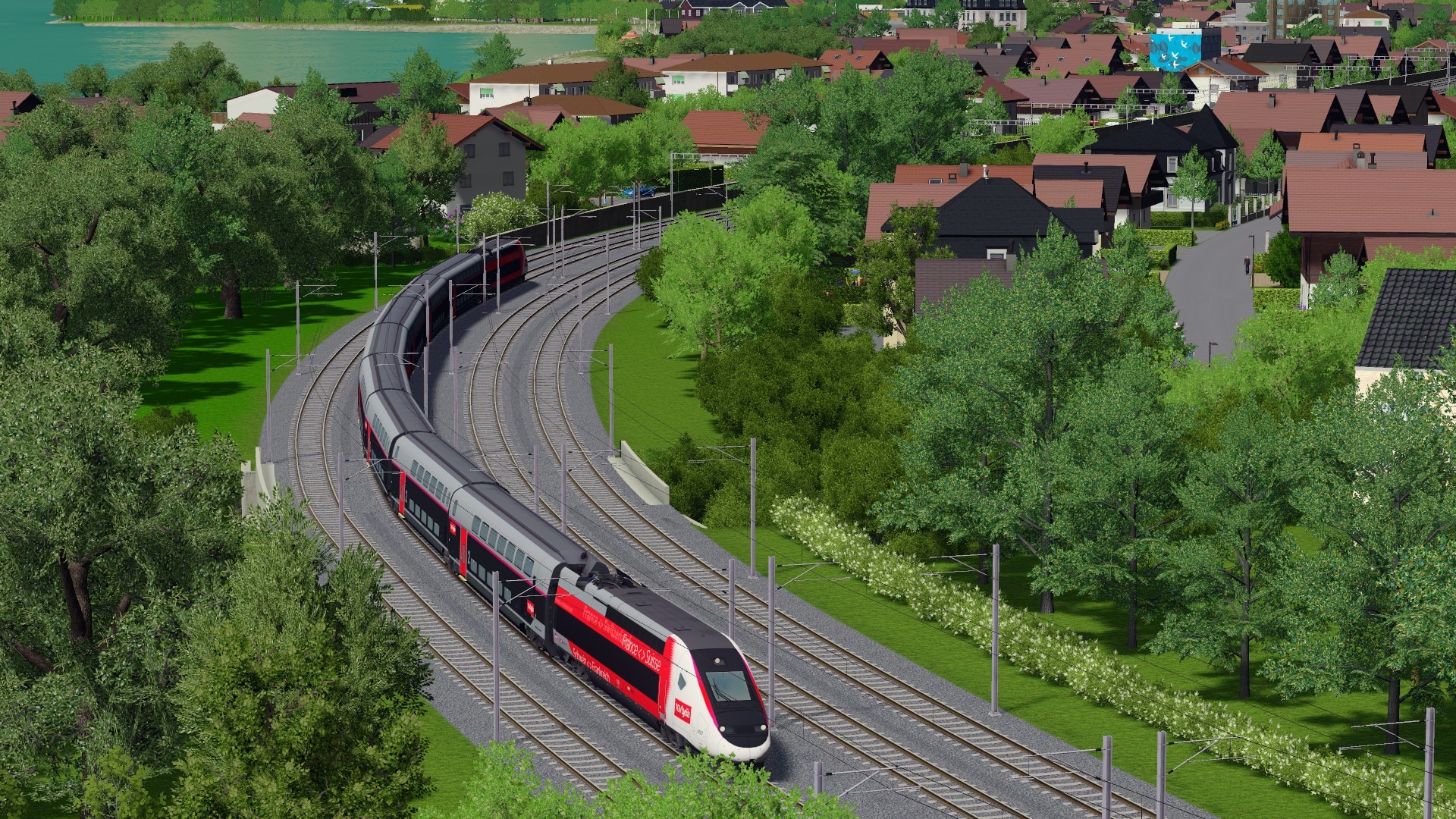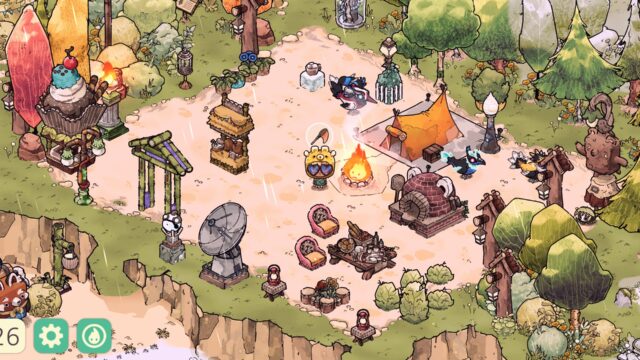Cities: Skylines Review

City of FrostBite.
The game does not allow you to start with the construction of multi-lane roads, you need to lay at least one section of any small road. Long before the release of Cities: Skylines, I was familiar with the model of road traffic formation and roughly knew where wide highways would be needed and where narrow streets would suffice. But it was not so simple: the interface strongly hinted that you needed to do it this way, not otherwise.
If you don’t plan ahead, you will incur significant losses. Those who do not have a driver’s license may initially not understand the system, except through indirect signs, such as traffic congestion on city roads. You must ensure that ambulances and fire trucks can reach every house, that education and healthcare are easily accessible in residential areas. The efficiency of service clearly depends on the planning of the road network and the placement of infrastructure buildings.
This is the evolution of the city, not the addition of new districts. As the population grows, new types of buildings appear that need to be integrated into existing areas. Suddenly, you notice that traffic jams become a big problem, and nearby structures hinder road expansion, so you have to resort to the help of excavators and redesign entire blocks with the use of a pickaxe and a sledgehammer.
The economic model does not pose any serious challenges. I only faced a shortage of funds once when I needed to build an additional power plant. All my problems were solved by a loan at a ridiculously low interest rate. Maybe it’s common in the US, but no one would give us money for development at 5% per annum. Local loans become a cheap means of intensifying city growth.
It is important to remember that this is just a game. Do not expect a realistic simulation of city management from it. The problems of metropolises are much deeper than electricity supply, water supply, sewage, healthcare, and education, more than we can imagine.

At the same time, Cities: Skylines is a well-developed simulation game. Perhaps if the game were more complex and closer to reality, it would not be so addictive. I logged in for an hour and woke up in the evening, and the population mark had already exceeded 100,000.
Preliminary thoughts from Doctor
An obvious comparison with the long-suffering SimCity is evident from the start. The authors seem to intentionally poke at Maxis’ creation, adopting all its most useful habits, but doing it two levels better. The absolutely identical interface, which raises suspicions of blatant plagiarism, turns out to be much deeper and at the same time intuitive. Urban planning serves not only a cosmetic function but also a practical one, and in general, it becomes an extremely interesting, diverse, and pleasantly complex task. And to make life even more like a fairy tale, there is also support for the Steam Workshop, where all kinds of user-generated content have found a home.
But the main advantage of Cities: Skylines compared to its obvious competitor is its scale. After experiencing the megacities here, it is not desirable to return to SimCity with its pitiful patches of land and forty-minute villages, honestly, not at all. It can take about fifteen hours to master one map, not counting the beautiful planning of streets, decoration, efficient organization of transportation, and a billion other permissible things – even during this time, a rapidly growing city is unlikely to reach the constantly expanding boundaries. And when it finally does, you can install a mod to remove the limits. Or try a new location from the Workshop…
The most joyful thing is that playing again is always equally enjoyable here. Each attempt is different from the previous one, and each new city is like a trial run before an even more grandiose project. Second, third, fourth maps are gradually covered with skyscrapers, and all the time, there is another flaw in urban masterpieces that pushes you to start from scratch. In Cities: Skylines, you are constantly learning something, discovering new things, and finding your own ways to solve problems – that’s why it’s incredibly interesting and fun to step on the same rakes with the same set of actions.
Share
Discuss
More Reviews





